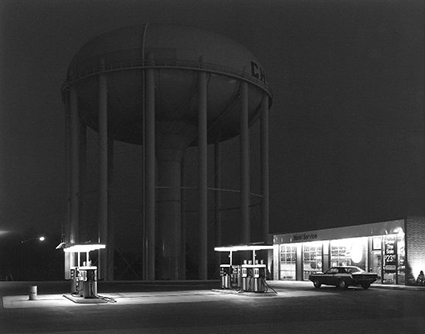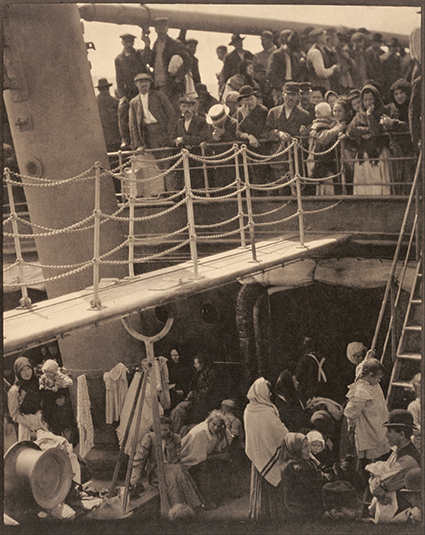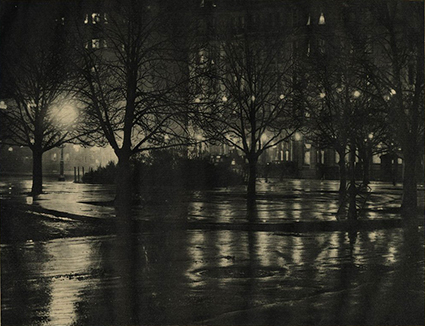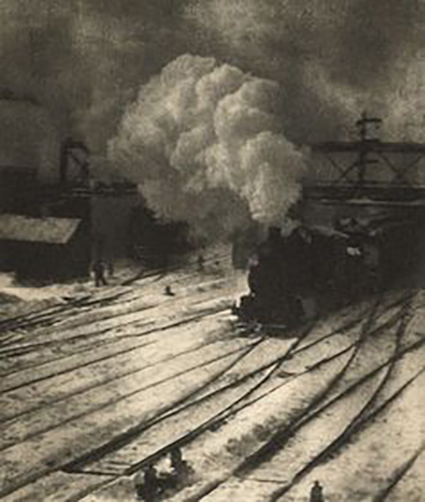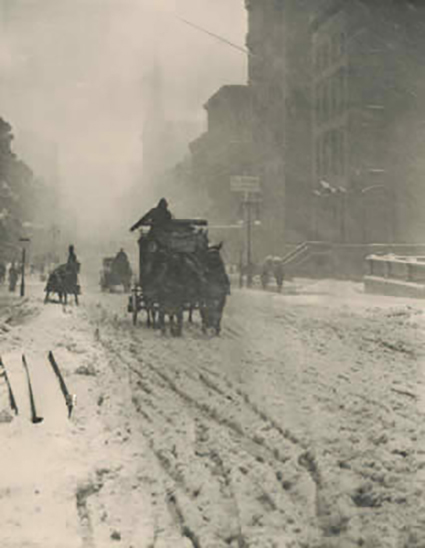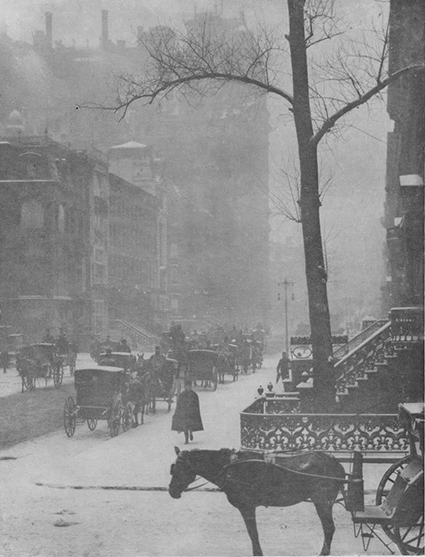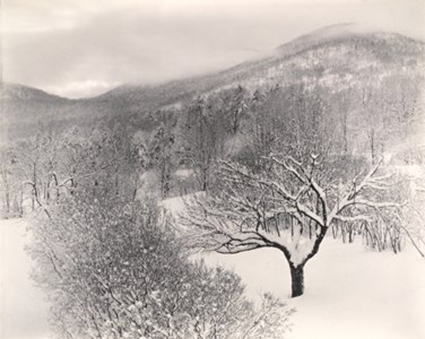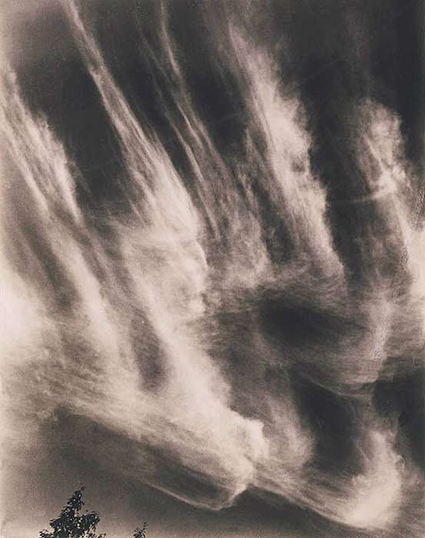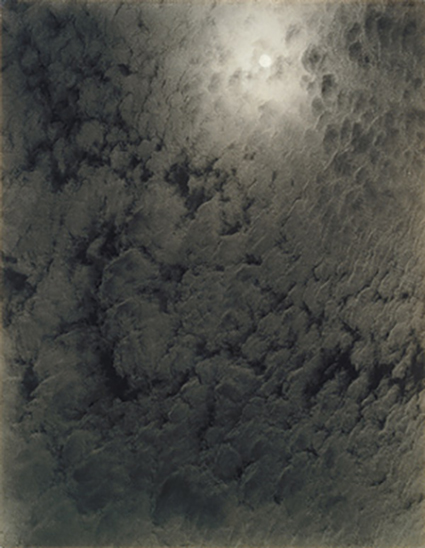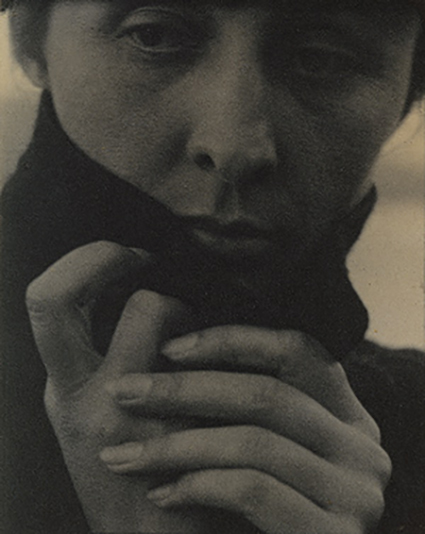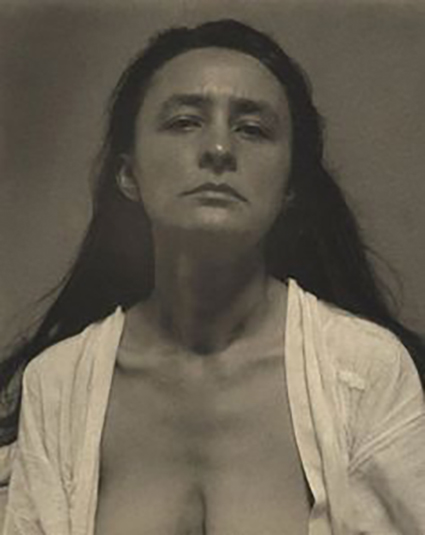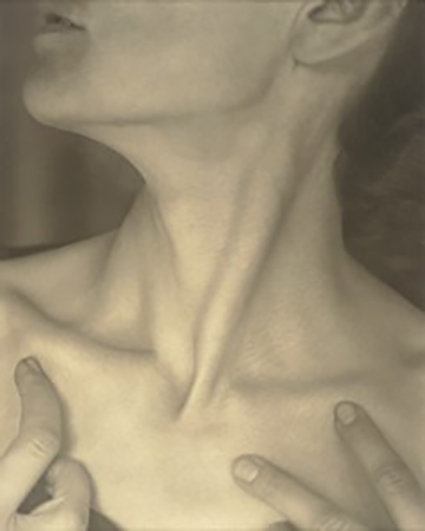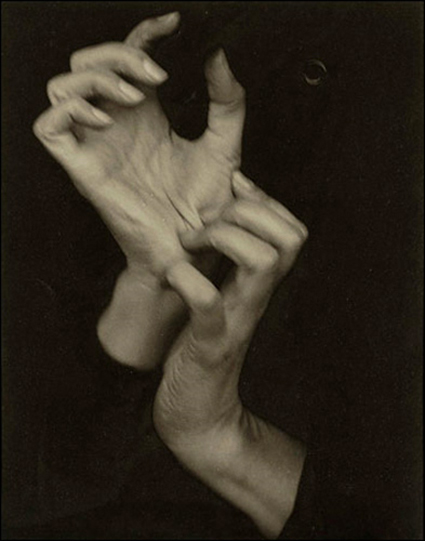22 Quotes By Photographer James Nachtwey
You’re sure to find many insights in this collection of quotes by photographer James Nachtwey.
“There is a job to be done…to record the truth. I want to wake people up!” – James Nachtwey
“When the truth is spoken, it doesn’t need to be adorned. It just needs to be simply stated, and often it only needs to be said once.” – James Nachtwey
“I try to use whatever I know about photography to be of service to the people I’m photographing.” – James Nachtwey
“The worst thing is to feel that as a photographer I am benefiting from someone else’s tragedy. This idea haunts me. It is something I have to reckon with every day because I know that if I ever allow genuine compassion to be overtaken by personal ambition I will have sold my soul. The stakes are simply too high for me to believe otherwise.” – James Nachtwey
“I attempt to become as totally responsible to the subject as I possibly can. The act of being an outsider aiming a camera can be a violation of humanity. The only way I can justify my role is to have respect for the other person’s predicament. The extend to which I do that is the extent to which I become accepted by the other, and to that extent I can accept myself.” – James Nachtwey
“I have been a witness, and these pictures are my testimony. The events I have recorded should not be forgotten and must not be repeated.” – James Nachtwey
“I want my pictures to cut through political abstractions… and make a connection on a human level.” – James Nachtwey
“I want to record history through the destiny of individuals who often belong to the least wealthy classes. I do not want to show war in general, nor history with a capital H, but rather the tragedy of a single man, of a family.” – James Nachtwey
“Photojournalists know the horrors of war can only be exposed at close range. Kodak Film.” – James Nachtwey
“For me, the strength of photography lies in its ability to evoke a sense of humanity. If war is an attempt to negate humanity, then photography can be perceived as the opposite of war and if it is used well it can be a powerful ingredient in the antidote to war.” – James Nachtwey
“I used to call myself a war photographer. Now I consider myself as an antiwar photographer.” – James Nachtwey
“I want to record history through the destiny of individuals who often belong to the least wealty classes. I do not want to show war in general, nor history with a capital H, but rather the tragedy of a single man, of a family.” – James Nachtwey
“I want my work to become part of our visual history, to enter our collective memory and our collective conscience. I hope it will serve to remind us that history’s deepest tragedies concern not the great protagonists who set events in motion but the countless ordinary people who are caught up in those events and torn apart by their remorseless fury. I have been a witness, and these pictures are my testimony. The events I have recorded should not be forgotten and must not be repeated.” – James Nachtwey
“The greatest statesmen, philosophers, humanitarians … have not been able to put an end to war. Why place that demand on photography?” – James Nachtwey
“Is it possible to put an end to a form of human behavior which has existed throughout history by means of photography? The proportions of that notion seem ridiculously out of balance. Yet, that very idea has motivated me.” – James Nachtwey
“But everyone cannot be there, and that is why photographers go there – to show them, to reach out and grab them and make them stop what they are doing and pay attention to what is going on – to create pictures powerful enough to overcome the diluting effects of the mass media and shake people out of their indifference – to protest and by the strength of that protest to make others protest.” – James Nachtwey
“If there is something occurring that is so bad that it could be considered a crime against humanity, it has to be transmitted with anguish, with pain, and create an impact in people – upset them, shake them up, wake them out of their everyday routine.” – James Nachtwey
“I don’t believe there’s any such thing as objective reality. It’s only reality as we experience it.” – James Nachtwey
“If I’m feeling outraged, grief, disbelief, frustration, sympathy, that gets channeled through me and into my pictures and hopefully transmitted to the viewer.” – James Nachtwey
“None of the editors I’ve worked with have ever asked me to pull my punches. They’ve never asked me to give them anything other than my own interpretation of events.” – James Nachtwey
“I don’t think tragic situations are necessarily devoid of beauty.” – James Nachtwey
“It is very hard to say where you’re going until you get there. That kind of thing is based very much on instinct. As a photographer, one of the most important lessons I have learnt is that you have to learn to listen to and trust your own instinct. It has helped to guide me – this far at least.” – James Nachtwey
Read more from The Essential Collection Of Quotes By Photographers.
View more in 12 Great Photographs By Great Photographers.
8 Quotes By Photographer George Tice
“Photography teaches us to see, and we can see whatever we wish. When I take a photograph, I make a wish. I was always looking for beauty.” – George Tice
“I try to take my interests and make them my work.” – George Tice
“As I progressed further with my project, it became obvious that it was really unimportant where I chose to photograph. The particular place simply provided an excuse to produce work… you can only see what you are ready to see – what mirrors your mind at that particular time.” – George Tice
“It’s never as good the second time. Things don’t get better. You can’t always go back, a lot of it has been erased. The photograph is a record of it having existed.” – George Tice
“It takes the passage of time before an image of a commonplace subject can be assessed. The great difficulty of what I attempt is seeing beyond the moment; the everydayness of life gets in the way of the eternal.” – George Tice
“The thing itself photographed becomes less interesting when you go back to it years later but I think the photograph becomes more important later when the reality has passed.” – George Tice
“My taking pictures means I’m taking a series of pictures which become an essay and then get extended into a book. That’s what’s exciting, to take an idea and work it through to completion.” – George Tice
“I don’t speak emotionally about my pictures. That’s for other people to do. I will say that I love my photographs. That’s what keeps me going.” – George Tice
13 Quotes By Photographer Richard Misrach
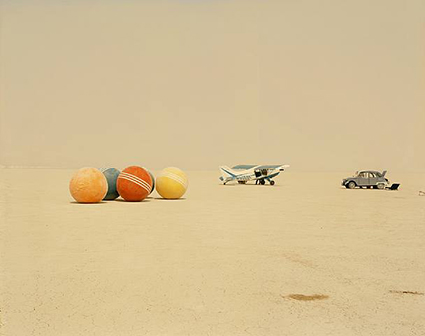
Enjoy this collection of quotes by master photographer Richard Misrach.
“I’ve come to believe that beauty can be a very powerful conveyor of difficult ideas. It engages people when they might otherwise look away.” – Richard Misrach
“It’s hard for art to really solve problems but I’ve come to believe that art is an important way of communicating, not only with current generations, but future generations.” – Richard Misrach
“To me, the work I do is a means of interpreting unsettling truths, of bearing witness, and of sounding an alarm. The beauty of formal representation both carries an affirmation of life and subversively brings us face to face with news from our besieged world.” – Richard Misrach
“I’m not interested in victim photography. Photographing people suffering and putting it on a museum wall is too weird.” – Richard Misrach
“The very act of representation has been so thoroughly challenged in recent years by postmodern theories that it is impossible not to see the flaws everywhere, in any practice of photography. Traditional genres in particular—journalism, documentary studies, and fine-art photography—have become shells, or forms emptied of meaning.” – Richard Misrach
“In spite of recent trends towards fabricating photographic narratives, I find, more than ever, traditional photographic capture, the ‘discovery’ of found narratives, deeply compelling.” – Richard Misrach
“The desert … may serve better as the backdrop for the problematic relationship between man and the environment. The human struggle, the successes … both noble and foolish, are readily apparent in the desert. Symbols and relationships seem to arise that stand for the human condition itself.” – Richard Misrach
“People have responded to the pictures I make as mystical things, and they somehow carry the illusion further thinking that the place is this mystical, magical place. The desert is also a very barren place, a very lonely place, a very boring, uneventful place.” – Richard Misrach
“The one thing that seems to be consistent through all my work that I like, and I experimented a lot, is the viewer is allowed to meditate on something that normally we don’t stop and stare at, whether it’s people or a cactus.” – Richard Misrach
“One of the things that was really influential early on was Ezra Pound’s Cantos, one poem he worked on for 50 years. It’s epic. I had a great deal of difficulty understanding it. One of the problems was you’d be reading along in English and he would move to a Chinese ideogram or French–he actually used seven different languages in a given poem. And for somebody who’s not fluent in different languages it has the impact of rupturing your way of understanding something. It was very purposeful on his part to put these obstacles of language in there so that you become conscious of the whole system. You don’t get a neat narrative or a neat poem. Once you run into these obstacles of language you have to stop and think about other things. So, for me, in putting The Playboys or The Paintings or these language things in with these more conventional landscapes they inform each other. It does scatter, it does rupture, the way cubist paintings would. Each gives you a different way to approach something and sheds light on everything else.” – Richard Misrach
“Our experience with knowledge, the way we know things, is not that neat. It doesn’t fit into a grand narrative, the way we’ve been taught to read.” – Richard Misrach
“I am not unaware that I have the mindset, as contradictory as it may sound, to discover in the world what I am in fact looking for. Perhaps the best pictures are a seamless hybrid of discovery and construction.” – Richard Misrach
“Whatever else a photograph may be about, it is always about time.” – Richard Misrach
“I think this is the most exciting time in the history of photography. Technology is expanding what photographers can do, like the microscope and the telescope expanded what scientists could do.” – Richard Misrach
Read my conversation with Richard Misrach.
21 Quotes By Photographer Fredrick Sommer
Enjoy this collection of quotes by photographer Fredrick Sommer.
“The only way to understand something is to be confronted by something that is difficult to understand.” – Frederick Sommer
“Everything is shared by everything else; there are no discontinuities.” – Frederick Sommer
“The coherent way of investigating any field is to examine its possible relatedness to other things.” – Frederick Sommer
“Photography is a distributive act leading to a privileged condition.” – Frederick Sommer” – Fred Sommer
“Life itself is not the reality. We are the ones who put life into stones and pebbles.” – Frederick Sommer
“Some speak of a return to nature. I wonder where they could have been.” – Frederick Sommer
“… art is images you carry. You cannot carry nature with you, but you carry images of nature. When you go out to make a picture you find you are moved by something which is in agreement with an image you already held within yourself.” – Frederick Sommer
“The field of action of a photograph should be that chessboard of the heart and mind upon which poetry and art have always operated.” – Frederick Sommer
“My photographs are not pure: they are a seething wealth of imperfection.” – Frederick Sommer
“Poetic and speculative photographs can result if one works carefully and accurately, yet letting chance relationships have full play.” – Frederick Sommer
“If I could find them (assemblages) in nature I would photograph them. I make them because through photography I have a knowledge of things that can’t be found.” – Frederick Sommer
“Art is not arbitrary. A fine painting is not there by accident; it is not arrived at by chance.” – Frederick Sommer
“Art and accident are one.” – Frederick Sommer
“Choice and chance structure art and nature.” – Frederick Sommer
“Ideas and thoughts collide and sort themselves out in these fruitful collisions.” – Frederick Sommer
“Ideas and art are the possibility of an answer tomorrow.” – Frederick Sommer
“Art accepts what it finds.” – Frederick Sommer
“In total acceptance, almost everything becomes a revelation.” – Frederick Sommer
“Art is the splendor of reality before everything has become meaning.” – Frederick Sommer
“Reality is greater than our dreams.” – Frederick Sommer
“We work for that part of our vision which is uncompleted.” – Frederick Sommer
View 12 Great Photographs By Fredrick Sommer.
View a documentary on Fredrick Sommer.
Read more in The Essential Collection Of Photographer’s Quotes.
Photographer Fredrick Sommer – Visions & Images Video
Master photographer Fredrick Sommer discusses his life in photography.
Read quotes by Fredrick Sommer.
View 12 Great Photographs By Fredrick Sommer
View more in The Essential Collection Of Documentaries On Photographers.
Photographer Arnold Newman – Interview & Heisler’s In Memoriam
Photographer Arnold Newman is widely considered the ‘father of environmental portraiture’.
Newman offers candid insights in an interview.
Master photographer Gregory Heisler pays tribute to his mentor.
View 12 Great Photographs By Arnold Newman here.
Read quotes by Arnold Newman here.
View more in The Essential Collection Of Documentaries On Photographers.
Photographer Walker Evans – In His Own Words
Photographer Walker Evans describes his life and life’s work.
View more in The Essential Collection Of Documentaries On Photographers.
Read more in The Essential Collection Of Quotes By Photographers.
See more in 12 Great Photographs By Great Photographers.
32 Quotes By Photographer Walker Evans
Enjoy this collection of quotes by photographer Walker Evans.
“The eye traffics in feelings, not in thoughts.” ― Walker Evans,
“Stare. It is the way to educate your eye, and more. Stare, pry, listen, eavesdrop. Die knowing something. You are not here long.” – Walker Evans
“Whether he is an artist or not, the photographer is a joyous sensualist, for the simple reason that the eye traffics in feelings, not in thoughts.” – Walker Evans
“I think there is a period of esthetic discovery that happens to a man and he can do all sorts of things at white heat.” – Walker Evans
“With the camera, it’s all or nothing. You either get what you’re after at once, or what you do has to be worthless. I don’t think the essence of photography has the hand in it so much. The essence is done very quietly with a flash of the mind, and with a machine. I think too that photography is editing, editing after the taking. After knowing what to take, you have to do the editing.” – Walker Evans
Interviewer: “Do you think it’s possible for the camera to lie?”
Walker Evans: “It certainly is. It almost always does.” – Walker Evans
“I’m sometimes called a ‘documentary photographer’ but… a man operating under that definition could take a sly pleasure in the disguise. Very often I’m doing one thing when I’m thought to be doing another.” – Walker Evans
“Documentary: That’s a sophisticated and misleading word. And not really clear… The term should be documentary style… You see, a document has use, whereas art is really useless.” – Walker Evans
“I used to try to figure out precisely what I was seeing all the time, until I discovered I didn’t need to. If the thing is there, why, there it is.” – Walker Evans
“Detachment, lack of sentimentality, originality, a lot of things that sound rather empty. I know what they mean. Let’s say, “visual impact” may not mean much to anybody. I could point it out though. I mean it’s a quality that something has or does not have. Coherence. Well, some things are weak, some things are strong…” – Walker Evans
“What I believe is really good in the so-called documentary approach to photography is the addition of lyricism. This quality is usually produced unconsciously and even unintentionally and accidentally by the cameraman.” – Walker Evans
“The secret of photography is, the camera takes on the character and personality of the handler.” – Walker Evans
“When I first made photographs, they were too plain to be considered art and I wasn’t considered an artist. I didn’t get any attention at all. The people who looked at my work thought, well, that’s just a snapshot of the backyard. Privately I knew otherwise and through stubbornness stayed with it…” – Walker Evans
“I began to wonder – I knew I was an artist or wanted to be one – but I was wondering whether I really was an artist. I was doing such ordinary things that I could feel the difference. Most people would look at those things and say, ‘Well, that’s nothing. What did you do that for? That’s just a wreck of a car or a wreck of a man. That’s nothing. That isn’t art.’ They don’t say that anymore. – Walker Evans
“Leaving aside the mysteries and the inequities of human talent, brains, taste, and reputations, the matter of art in photography may come down to this: it is the capture and projection of the delights of seeing; it is the defining of observation full and felt.” – Walker Evans
“The meaning of quality in photography’s best pictures lies written in the language of vision. That language is learned by chance, not system; …our overwhelming formal education deals in words, mathematical figures and methods of rational thought, not in images.” – Walker Evans
“The photographs are not illustrative. They, and the text, are coequal, mutually independent, and fully collaborative. By their fewness, and by the importance of the reader’s eye, this will be misunderstood by most of that minority which does not wholly ignore it. In the interests, however, of the history and future of photography, that risk seems irrelevant, and this flat statement necessary.” – Walker Evans
“Somewhere in our search for reality we have passed something by, something important that we no longer find amid the bits and pieces of disassembled matter-something vital that we cannot build out of these parts. There is surely something else, some piece of divinity in us, something that was before the elements, and that owes no homage to the sun.” – Walker Evans
“It is easy to imagine fantasy as physical and myth as real. We do it almost every moment. We do this as we dream, as we think, and as we cope with the world about us. But these worlds of fantasy that we form into the solid things around us are the source of our discontent. They inspire our search to find ourselves.” – Walker Evans
“I work rather blindly. I have a theory that seems to work with me that some of the best things you ever do sort of come through you. You don’t know where you get the impetus and response to what’s before your eyes.” – Walker Evans
“I do note that photography, a despised medium to work in, is full of empty phonies and worthless commercial people. That presents quite a challenge to the man who can take delight in being in a very difficult, disdained medium.” – Walker Evans
“I say half jokingly that photography is the most difficult of the arts. It does require a certain arrogance to see and to choose. I feel myself walking on a tightrope instead of on the ground.” – Walker Evans
“Good photography is unpretentious.” – Walker Evans
“Do we know what we look like? Not really.” – Walker Evans
“…nature photographs downright bore me for some reason or other. I think: ‘Oh, yes. Look at that sand dune. What of it?’” – Walker Evans
“Photography is not cute cats, nor nudes, motherhood or arrangements of manufactured products. Under no circumstances it is anything ever anywhere near a beach.” – Walker Evans
“Incidentally, part of a photographer’s gift should be with people. You can do some wonderful work if you know how to make people understand what you’re doing and feel all right about it, and you can do terrible work if you put them on the defense, which they all are at the beginning. You’ve got to take them off their defensive attitude and make them participate.” – Walker Evans
“It’s easy to photograph light reflecting from a surface, the truly hard part is capturing the light in the air.” – Walker Evans
“Privilege, if you’re very strict, is an immoral and unjust thing to have, but if you’ve got it you didn’t choose to get it and you might as well use it. You’re privileged to be at Yale, but you know you’re under an obligation to repay what’s been put into you.” – Walker Evans
“I never took it upon myself to change the world. And those contemporaries of mine who were going around falling for the idea that they were going to bring down the United States government and make a new world were just asses to me.” – Walker Evans
“It’s too presumptuous and naïve to think you can change society by a photograph or anything else… I equate that with propaganda; I think that’s a lower rank of purpose.” – Walker Evans
“Die knowing something. You’re not here long.” ― Walker Evans
See more in 12 Great Photographs By Great Photographers.
View more in The Essential Collection Of Documentaries On Photographers.
Read more in The Essential Collection Of Quotes By Photographers.


